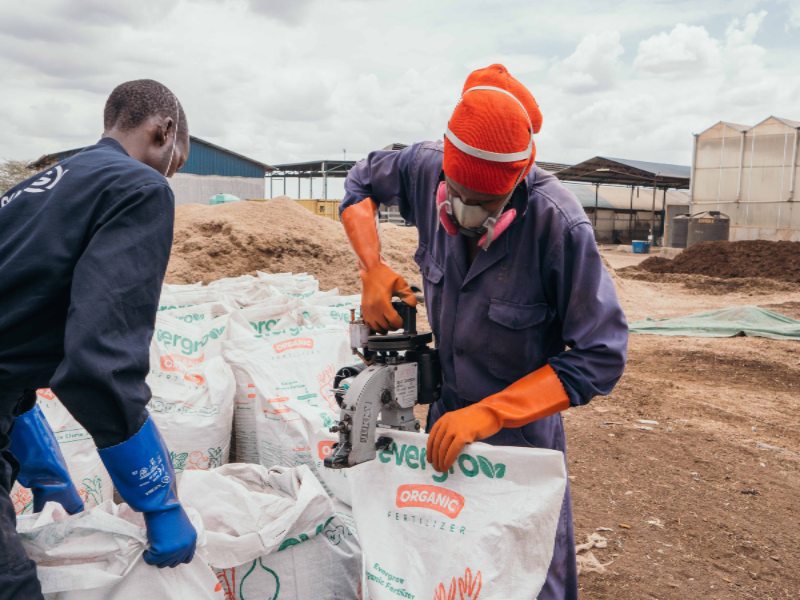
David Auerbach, Lindsay Stradley & Ani Vallabhaneni
The Sanergy Collaborative
Founders David Auerbach, Lindsay Stradley and Ani Vallabhaneni met at MIT’s Sloan School of Management in a class called “Development Ventures”. They wanted to start a company that would make a positive change in the world, and identified sanitation as an area that could benefit from innovation. The initial idea was to avail sanitation and waste management services, and produce biogas from the human waste. However, they found the idea was not likely to be profitable without a large amount of human waste. They identified fertilizer made from waste as a more viable product given the prevalence of agriculture in many developing countries, and a gap in the market for locally manufactured and organic fertilizers – that retail at a lower cost as compared to imported fertilizer. Funding was secured from winning entrepreneurship competitions, such as MIT’s $100K business plan competition and MassChallenge, a Boston-based international acceleration and grant program.
The supply of sanitation facilities in Kenya’s informal settlements falls far short of demand. Rapid urbanization has outpaced sanitation systems especially for the urban poor. Public toilets are few and far between, and many resort to informal pit latrines emptied into the environment, or defecating in plastic bags which end up in public spaces and sources. Sanergy is addressing the sanitation challenge by providing dry, affordable and ecofriendly container-based “Fresh Life” toilets to residents of informal settlements such as landlords, schools, public markets amongst others. The squat-style toilet is urine-diverting, with a removable cartridge that uses sawdust as cover material. Sanergy leases toilets to franchisees at no cost, but charges a monthly fee for the waste removal service and an annual fee for maintenance. The collected waste is then treated by Sanergy’s for profit partner - Regen Organics, and converted into organic fertilizer and insect-based protein livestock feed reducing environmental pollution and providing a local alternative to fertilizers made from fossil fuels.
Sanergy provides alternative sanitation options in informal settlements, thereby improving human health as well as environmental and social health. The company employs over 500 people, and its franchise model provides further income-generating opportunities in poor communities. The company has recently ventured into the collection of residual organic waste from markets, agribusinesses and abattoirs which is used to make eco-charcoal briquettes and as feed for black soldier flies, whose larvae are sold as highly nutritious animal feed.
Sanergy helps to reduce the amount of sewage and decomposing organic waste that would have ended up in the environment by collecting and processing it into higher value products. The sanitation waste in the Fresh Life Toilets is held in shallow containers, creating a high oxygen or aerobic environment which reduces methane production. Offsite composting further reduces the amount of methane generated by decomposing biomass. Using organic compost instead of artificial fertilizers made from fossil fuels improves soil health, reduces demand for fossil fuels and avoids the emissions associated with manufacturing and transporting artificial fertilizers.
Sanergy has a network of over 6,000 Fresh Life Toilets in Nairobi, Kisumu and Eldoret’s informal settlements, providing over 250,000 residents with daily access to safely managed sanitation. Through Regen Organics, the company is supplying organic fertilizer to 10,000 farmers who have recorded a 30% increase in yields.
Initially, Sanergy sold the toilets for to community entrepreneurs for an upfront or staggered payment of US$350-500 alongside an annual service fee, but later switched to a primarily residential model where the toilet operators install a toilet for a monthly fee of $8.
The company has expanded its inputs beyond human waste to include organic solid wastes from households and abattoirs. In addition to fertilizer, Sanergy started producing insect-based animal feed in 2016, and a manual pit emptiers’ waste management system (Mtaa Fresh) in 2018.